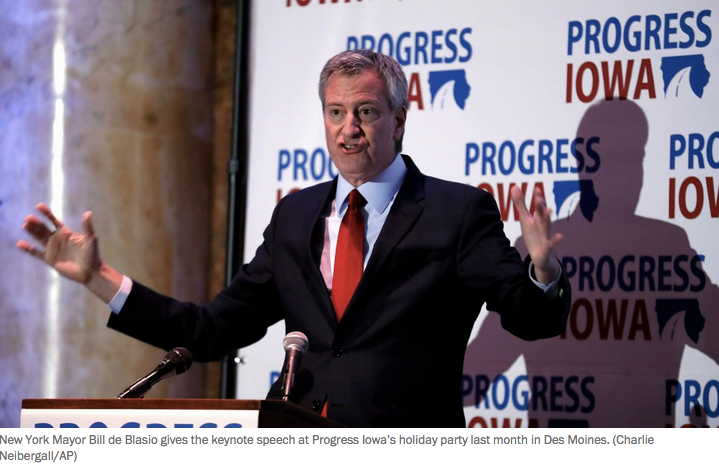DES MOINES — As Republicans celebrated their tax bill passing Congress late last month, Iowa Democrats raised a toast of their own. Candidates for Congress and governor, gathered at the annual Progress Iowa holiday party, took turns recapping a year of sinking GOP poll numbers and Democratic special-election wins — the “waking of a sleeping bear,” they said.
“If Trump were to run again, he’d be in deep trouble,” said Janet Petersen, the leader of Iowa’s Senate Democrats. “A dog bites you the first time, it’s not your fault. The second time it bites you, it’s your own damn fault.”
Iowa, the epicenter of the Republicans’ 2014 and 2016 surge, is not an obvious place for a Democratic comeback. Unemployment, sinking under 4 percent when Donald Trump won the state, has fallen to 3 percent. Iowa’s Republican delegation to Washington voted for the tax cut bill with no qualms or protests. Iowans can also subtract their federal income taxes from their state income taxes, a bonus enjoyed in only five other states.
Despite it all, Iowa has seemingly soured on the president and his party. The end-of-year Iowa Poll, an industry standard conducted by Des Moines-based Selzer and Co., found Trump with just 35 percent approval in the state. Only 34 percent of Iowans said they would back Republicans for Congress in 2018, and 61 percent said they were turned off by politics altogether.
The discrepancy between the rosy economic picture and the public’s distaste for Trump in Iowa has confounded both parties and complicated one of the major political stories of the decade — the Republican romp through the Midwest.




